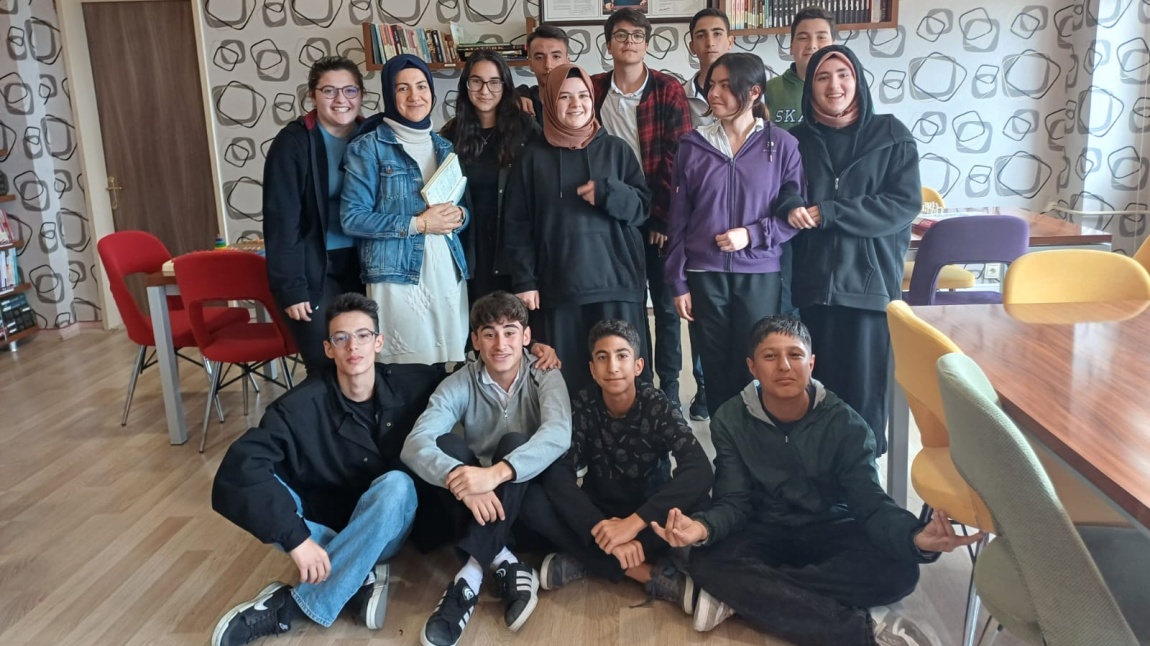The Impact Of COVID-19 Vaccines On Long COVID Incidence

Table of Contents
Vaccine Efficacy in Preventing Initial COVID-19 Infection
The most direct way COVID-19 vaccines impact Long COVID is by preventing or mitigating the initial infection. A less severe initial infection translates to a lower risk of developing the long-term complications associated with post-COVID syndrome.
Reducing the Risk of Severe Illness
COVID-19 vaccines significantly reduce the severity of COVID-19 illness. This is crucial because severe illness is strongly linked to a higher risk of developing Long COVID. By reducing the severity, vaccines lessen the viral load and the duration of the infection.
- Lower viral load: Studies have shown that vaccinated individuals who do contract COVID-19 generally experience a lower viral load compared to unvaccinated individuals. This lower viral load may reduce the inflammatory response and tissue damage that contribute to Long COVID.
- Reduced hospitalization rates: Vaccination dramatically reduces the likelihood of hospitalization, a key factor in the development of severe, long-lasting complications. Numerous studies across various demographics consistently show this correlation.
- Decreased duration of symptoms: Vaccines often lead to shorter symptom duration in those who do become infected, potentially limiting the time the body is under stress and reducing the risk of long-term damage. This effect is particularly relevant to the development of Long COVID.
Impact on Viral Shedding and Transmission
Beyond individual protection, vaccines reduce viral shedding, meaning vaccinated individuals are less likely to spread the virus. This community-level impact is crucial in reducing the overall number of COVID-19 infections, thus indirectly reducing the incidence of Long COVID across the population.
- Data on reduced transmissibility: Research consistently demonstrates that vaccinated individuals shed significantly less virus than unvaccinated individuals, even if they do contract the virus.
- Community impact of vaccination: High vaccination rates within a community contribute to herd immunity, protecting vulnerable individuals from infection and reducing the overall burden of Long COVID.
Direct Evidence on Long COVID Reduction from Vaccination
While the indirect impact is clear, direct evidence on the vaccine's impact on Long COVID is still emerging. Research is ongoing, and the complexity of Long COVID makes definitive conclusions challenging.
Observational Studies and their Findings
Several observational studies have examined the association between vaccination status and Long COVID incidence. These studies often reveal a reduced risk of Long COVID among vaccinated individuals compared to their unvaccinated counterparts. However, it's important to acknowledge limitations:
- Cite relevant studies: Many studies show a correlation, but they are observational and can't prove causation. Confounding factors like underlying health conditions and access to healthcare need careful consideration.
- Discuss methodologies: The varying methodologies of these studies make direct comparison challenging, and the results sometimes vary depending on the study design and population sampled.
- Mention potential confounding factors: Other variables, such as age, pre-existing conditions, and access to healthcare, can influence both vaccination status and Long COVID risk, making it essential to control for these factors in analysis.
Clinical Trials Investigating Vaccine Impact on Long COVID
Dedicated clinical trials are underway or completed to specifically investigate the vaccine's direct impact on preventing Long COVID. While results are still being analyzed and published, these trials provide a more rigorous assessment than observational studies.
- Summary of key findings: As these trials conclude, their findings will provide clearer insights into the efficacy of vaccines in preventing Long COVID. Early results are promising, but more data is needed.
- Limitations of current research: The long-term nature of Long COVID and the diverse range of symptoms make comprehensive clinical trials complex and time-consuming.
Indirect Benefits of Vaccination on Long COVID Risk
Even without direct evidence showing vaccines completely prevent Long COVID, indirect benefits significantly lower the risk.
Improved Immune Response and Recovery
A strong immune response, stimulated by vaccination, may lead to a faster and more complete recovery from COVID-19 infection. This may be crucial in preventing the transition to Long COVID.
- Discussion on the role of the immune system in recovery: A robust immune response can effectively clear the virus, minimizing long-term inflammation and tissue damage.
- Potential mechanisms behind Long COVID development: While not fully understood, the persistent inflammation and immune dysfunction associated with Long COVID highlight the importance of a strong and controlled immune response.
Reduced Need for Hospitalization and Intensive Care
Vaccination dramatically reduces severe illness requiring hospitalization and intensive care. Prolonged hospital stays are often associated with increased risk of complications, including Long COVID.
- Focus on the potential negative impacts of severe illness and prolonged hospital stays: Intensive care units expose patients to various factors (e.g., secondary infections, medication side effects) that could contribute to Long COVID development. Avoiding severe illness decreases this risk.
Addressing Vaccine Hesitancy and Misinformation
Despite the benefits, vaccine hesitancy persists. Addressing concerns and misinformation is vital for public health.
Common Concerns and Misconceptions
Common misconceptions surround the efficacy of vaccines in preventing Long COVID, leading to vaccine hesitancy.
- Debunk myths: Addressing misinformation directly with evidence-based information is crucial in building trust and promoting vaccination.
- Provide evidence-based information: Reliable sources like the CDC and WHO should be consulted for accurate information on vaccine efficacy and safety.
Importance of Vaccination for Public Health
Widespread vaccination remains crucial in preventing both acute COVID-19 and the associated risk of Long COVID.
- Discuss the broader societal benefits of vaccination: Beyond individual protection, vaccination protects communities, reduces strain on healthcare systems, and allows for a faster return to normalcy.
Conclusion
The evidence suggests that COVID-19 vaccines significantly reduce the risk of Long COVID, primarily by mitigating the severity of initial infection and reducing the likelihood of hospitalization. While direct evidence from dedicated clinical trials is still emerging, the indirect benefits are substantial. Addressing vaccine hesitancy and promoting vaccination remain crucial steps in protecting individuals and communities from this debilitating condition. Protect yourself from Long COVID through vaccination. Consult your doctor about COVID-19 vaccines and Long COVID. Learn more about the impact of COVID-19 vaccines and make an informed decision for your health.

Featured Posts
-
 The Ftcs Chat Gpt Investigation Understanding The Potential Consequences For Open Ai
May 29, 2025
The Ftcs Chat Gpt Investigation Understanding The Potential Consequences For Open Ai
May 29, 2025 -
 Hudsons Bay Company Announces Mass Layoffs And Store Closures This Sunday
May 29, 2025
Hudsons Bay Company Announces Mass Layoffs And Store Closures This Sunday
May 29, 2025 -
 Nike Air Max Dn8 Snakeskin Hv 8476 300 Drop Confirmed Release Date And Where To Buy
May 29, 2025
Nike Air Max Dn8 Snakeskin Hv 8476 300 Drop Confirmed Release Date And Where To Buy
May 29, 2025 -
 Heitinga Topkandidaat Voor Ajax Trainerschap
May 29, 2025
Heitinga Topkandidaat Voor Ajax Trainerschap
May 29, 2025 -
 Ski Lift Snowball Incident Parisian Could Face Imprisonment
May 29, 2025
Ski Lift Snowball Incident Parisian Could Face Imprisonment
May 29, 2025
Latest Posts
-
 Ciftler Sampiyonlugu Bondar Ve Waltert Megarasaray Otel Acik Turnuvasi Ni Kazandi
May 31, 2025
Ciftler Sampiyonlugu Bondar Ve Waltert Megarasaray Otel Acik Turnuvasi Ni Kazandi
May 31, 2025 -
 Megarasaray Acik Turnuvasi Nda Bondar Ve Waltert In Ciftler Sampiyonlugu
May 31, 2025
Megarasaray Acik Turnuvasi Nda Bondar Ve Waltert In Ciftler Sampiyonlugu
May 31, 2025 -
 Megarasaray Otel Acik Turnuvasi Ciftler Sampiyonlugu Bondar Waltert Zaferi
May 31, 2025
Megarasaray Otel Acik Turnuvasi Ciftler Sampiyonlugu Bondar Waltert Zaferi
May 31, 2025 -
 Bondar Ve Waltert Megarasaray Otel Acik Turnuvasi Nda Ciftler Sampiyonlugunu Kazandi
May 31, 2025
Bondar Ve Waltert Megarasaray Otel Acik Turnuvasi Nda Ciftler Sampiyonlugunu Kazandi
May 31, 2025 -
 Teniste Bir Ilke Novak Djokovic In Unutulmaz Zaferi
May 31, 2025
Teniste Bir Ilke Novak Djokovic In Unutulmaz Zaferi
May 31, 2025
